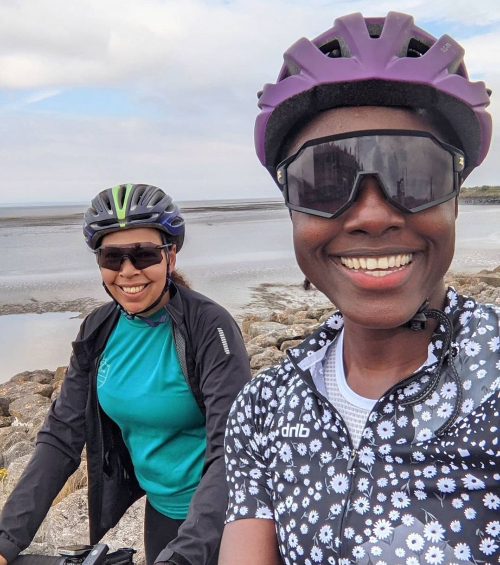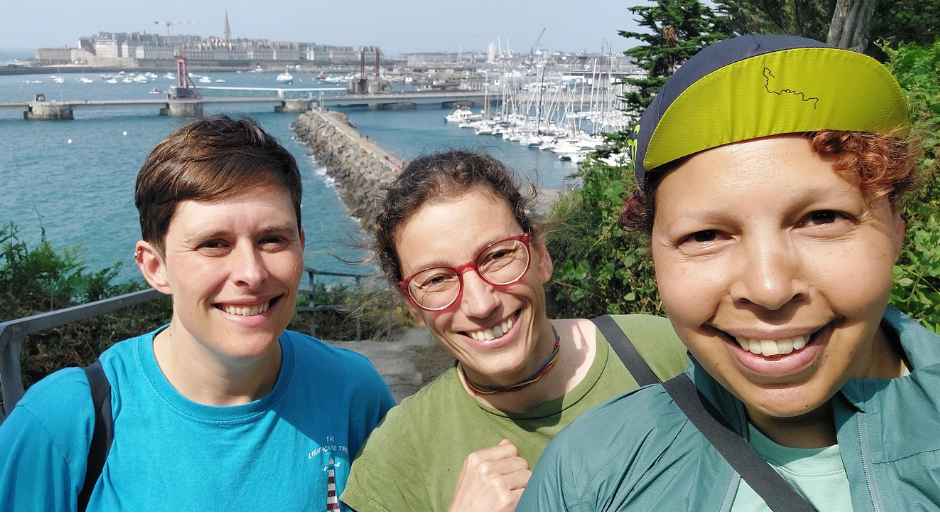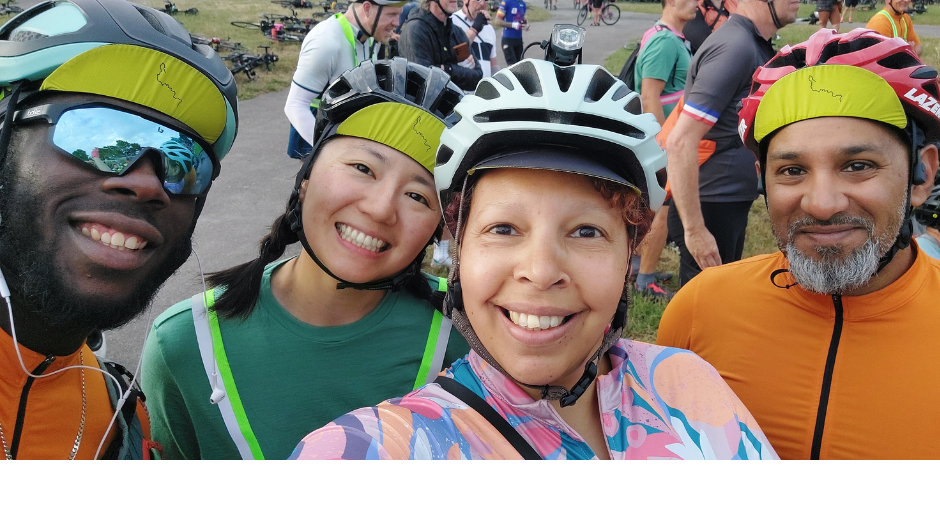Working with a Cycling Performance Coach

Working with a Cycling Performance Coach
Hello fellow endurance cyclists! Whether you're a competitive racer or someone who simply loves to push your boundaries on your wheeled steed, there’s always room for improvement, always the drive to go further and faster. Could working with a cycling performance coach be the game-changer you’ve been seeking? Maybe you think cycling performance coaches are just for ‘serious or professional’ athletes. I hope to prove you otherwise! In this article, we’ll explore what a cycling performance coach can offer, share core benefits, and help you determine if this path is right for you.
Why Consider a Cycling Performance Coach?
Cycling is as much a mental challenge as it is a physical one. While solo training can be fulfilling, having a professional guide can exponentially enhance your performance. You may find training by yourself unmotivating. Working with a coach could mean tapping into what does motivate you, and just that accountability and guidance you needed. Here are some compelling reasons to consider making the investment:
Personalised Training Plans
Every cyclist is unique. A performance coach can provide a personalised training plan tailored to your specific discipline and event, starting where you are now with your fitness and skills, and consideration for your work/life schedule. This isn’t a one-size-fits-all plan; it's custom-built for you, your goals, likes and dislikes.
Objective Performance Analysis
Sometimes it’s difficult to see our own progress, especially when minor setbacks occur. A coach offers unbiased, professional insight into your performance through data analysis, helping to identify strengths and areas for improvement. They may also include in your program demands of your event you might not have considered, such as night riding, on the bike nutrition, skills development and event strategy.
Accountability and Motivation
Let’s face it—staying motivated can be tough. A coach isn’t just there to tell you what to do, but to keep you motivated, accountable, and on track. Their belief in your potential can be empowering, especially during those tough training days. A coach can tap into what works for you to keep you motivated, as well as keep your program full of variety and challenges.
How a Coach Enhances Your Training
Science-Backed Approach
Cycling performance coaches employ science-backed methodologies to optimise your training. This can include using the latest research to inform gender specific training and nutrition protocols, fitness testing, and more. Understanding the science behind your workouts ensures every pedal stroke has a purpose. A cycling coach can develop a long term plan to ensure you are ready for your event, to inform your weekly sessions. They will build in the necessary load for progression, and recovery to keep you healthy.
Injury Prevention
Fatigue and improper technique can lead to injuries, which can sideline you for weeks or even months. A coach provides expert guidance on proper form, recovery techniques, and strength training to keep you healthy and on the bike. Training by yourself you might be tempted to never take an easy week. Putting yourself in the hands of a performance coach means they can educate you on when to recognise the signs of overtraining, or make the decision for you to prevent or manage niggles, before they become injuries.
Mental Conditioning
The mind is a powerful tool in endurance sports. The longer the event, the more important your mental game becomes. Coaches often include mental conditioning in their training regimens, teaching strategies to maintain focus, manage stress, and harness the competitive spirit during races or long rides. I personally try to ensure my clients build their mental resilience during the months ahead of their event, building it into their program, and taking into account the stresses of their everyday lives, which also have an impact on their physical health and ability to train effectively.
What to Look for in a Performance Coach
Choosing the right coach can make all the difference. Here’s what to keep in mind:
Credentials and Experience
Ensure your coach has the qualifications and a proven track record of success in the type of event you are training for, not necessarily personal success, more importantly, success with their clients. Look for testimonials or case studies of cyclists they have trained. Check out their website, blog, Instagram and any other content to get a feel for their personality and how they coach.
Communication Skills
Your coach should be accessible, approachable, and willing to listen to your needs and concerns. Also discuss how you will communicate, e.g. by email, text, voice messages, video calls, etc, and how much access you have with them, i.e. monthly calls, weekly check ins, etc. If you feel you need it, look for a coach that offers flexibility and the ability to think outside the box.
Compatibility
The athlete/Coach relationship is key to your success. Your personalities should mesh well. A good rapport can significantly enhance the coaching experience and outcomes. You should feel at ease chatting to them, and that they understand what makes you tick. Go by your gut instincts, but note, it can take 3 months or more for you and your coach to build a solid understanding of each other. Most coaches include a minimum commitment of three months in their terms for this reason.

Real Stories: Cyclists Benefiting from Coaches
To bring these points home, let’s look at a some of real-world success stories:
Jen finding joy through grief
Jen was already a seasoned Audax rider, but had ambitions to complete the 1400km London Edinburgh London Audax as a way of working through the bereavement of a family member, after caring for them for many years. She felt she needed some extra help. After an initial chat, Jen chose me as her coach. Jen and I worked together on building on her endurance base, whilst preparing her body for multiday rides. I also introduce Jen to strength & conditioning workouts which would help her body to cope with long back to back days in the saddle, as well as reduce the risk of injury. Due to some mechanical problems, about halfway, Jen just missed the time cut off by an hour or so, but continued to work with me to get ready for the following year’s challenge, the Pan Celtic Race. Jen finished the PCR strong and hasn’t looked back! We continue to work together, adapting her training to the new challenges she sets for herself. We have now included resistance training to her training program, as we navigate the changes she’s experiencing through the perimenopause.
Vera’s Journey leisure rider to ultra cyclist
Vera was introduced to leisure cycling by her now husband, Matt. She came across the Ultra Distance Scholarship, calling out for applicants in its very first year, and on a whim, decided to apply. Her application made a huge impression on me and the scholarship founder, Taylor, and we chose her as our first UDS winner. Then the hard work started! The challenge was to prepare Vera for her first ultra distance race, when she currently hadn’t yet done her first century ride. The focus of her training program in the first few months was to let her body become accustomed to structured training. It was important to not throw Vera into high volume weeks and risk burnout and injury. We immediately started with strength and conditioning workouts and introducing midweek interval rides. As with Jen, we moved on to preparing her body for multiday rides, with back to back endurance rides. Amazingly, Vera reached the finish line of her first ultra, the tough Pan Celtic Race! She said she had tough days but felt strong post race, and didn’t seem to experience the same recovery needs others in the race had reported.
Tom’s ADHD challenge
Tom came to me from a referral from a previous client. He had just four months to train for a 24 hour off road charity event! He wasn’t a regular cyclist, but had a high level of fitness participating in a variety of sports and activities. His work schedule was hectic and he had untreated ADHD. We found the monthly catch up calls didn’t work for him, so we experimented with a variety of formats, settling on short weekly video calls, and text check ins through the week. The focus was ensuring each ride and workout was focused and efficient, as standard training blocks were impossible with his schedule. We found a way to make it work!
Is a Cycling Performance Coach Right for You?
Ultimately, deciding to work with a coach boils down to your personal goals and commitment to improving your performance. If you're serious about making significant gains, overcoming plateaus, or achieving an audacious goal, a performance coach may be the perfect partner on your journey.
Ready to take your cycling to the next level? Find a coach who fits your style. Most offer a free initial coach so you can get to know each other, ask about expectations of you and from them. I recommend chatting to two or three, as well as asking around your cycling community what their experiences and have been, and if they would make a recommendation. Coaching styles can vary wildly.
---
Thank you for reading! If you found this article helpful, feel free to share it with your cycling community or leave a comment below on your experience with performance coaching.
Happy riding!
